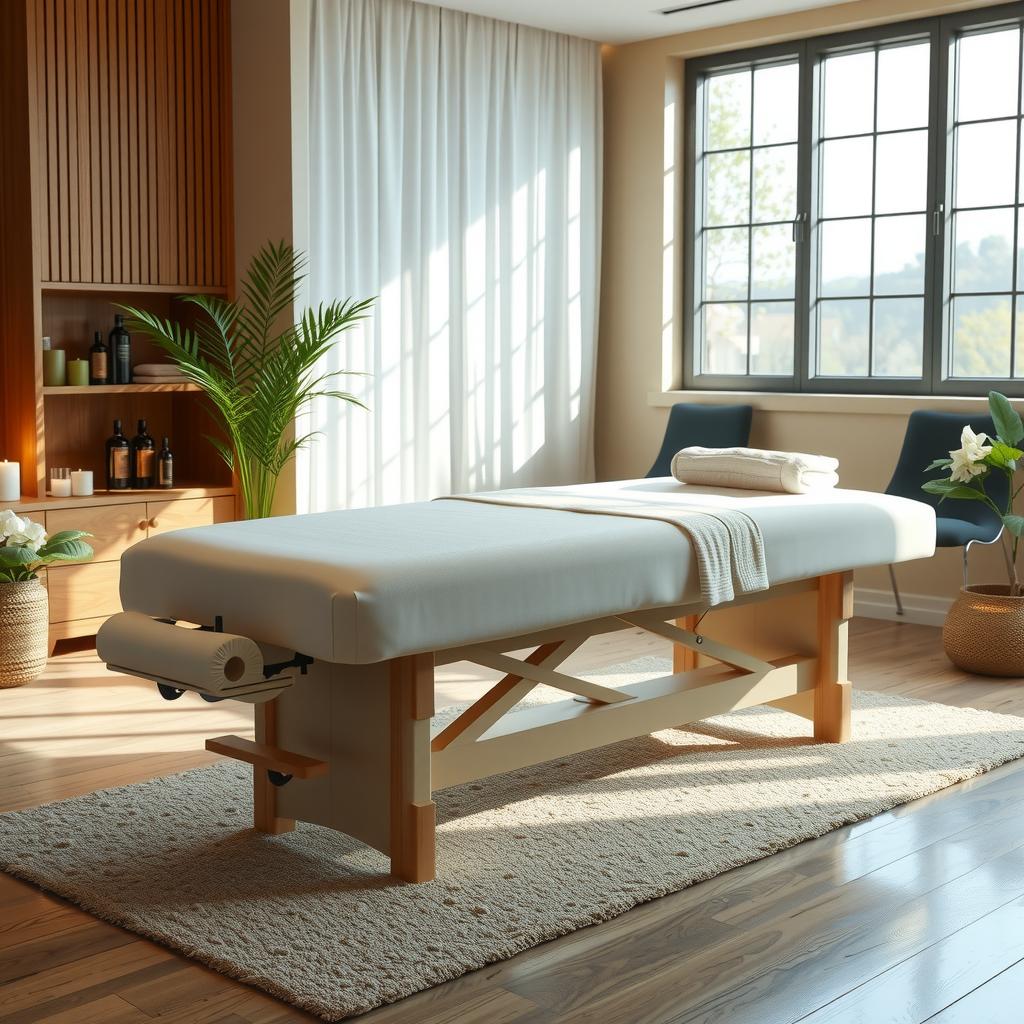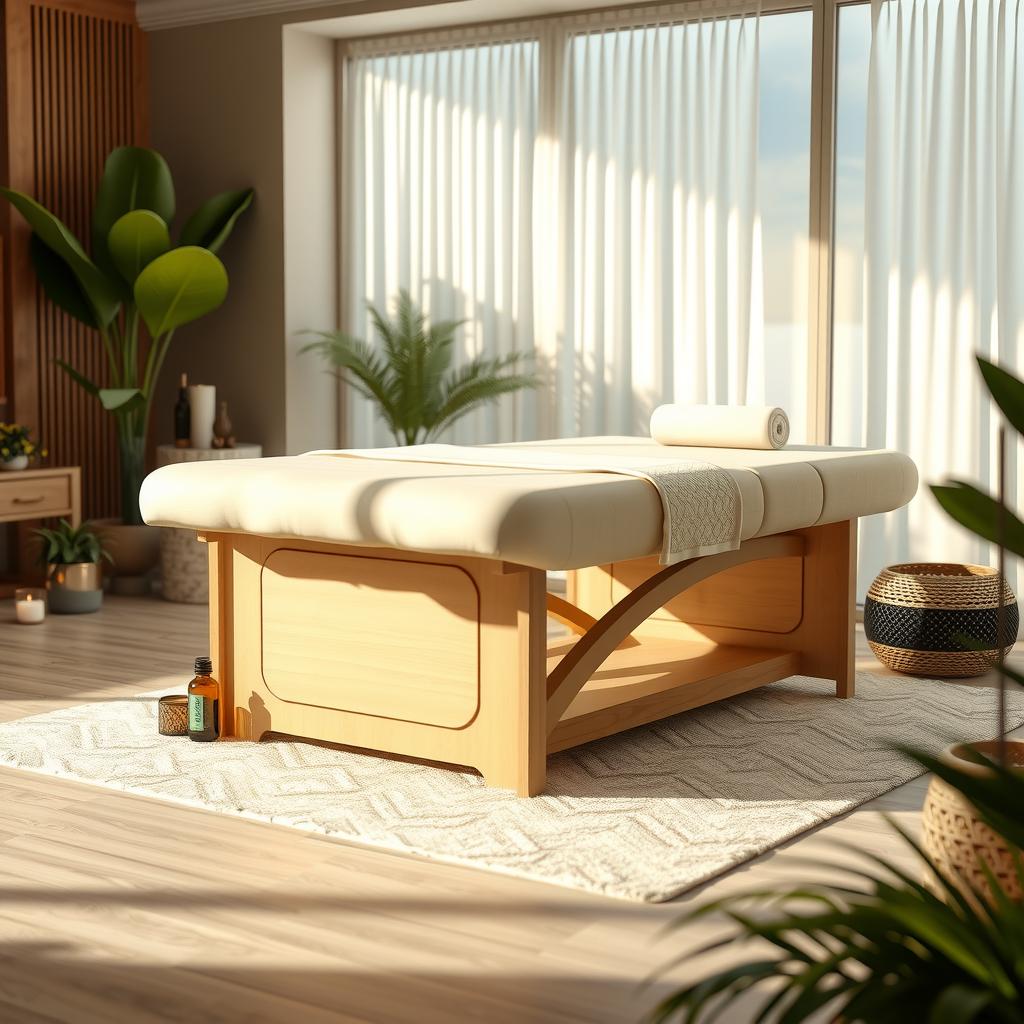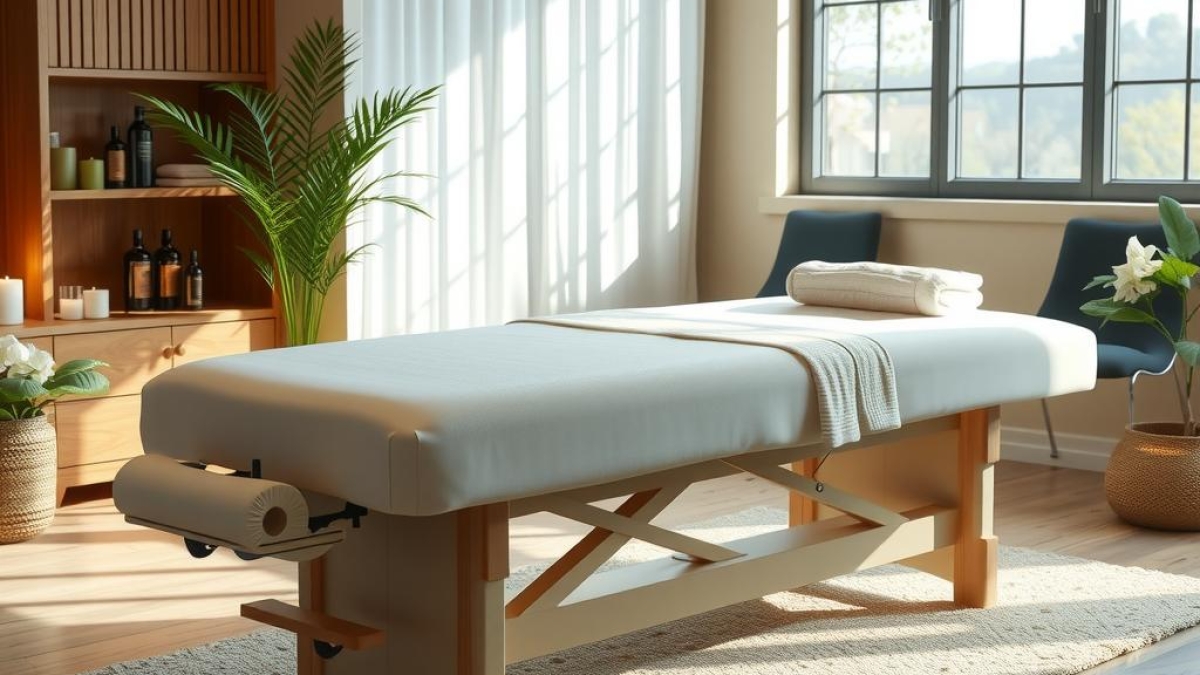In the world of professional massage therapy, selecting the right tools is crucial for both therapists and their clients. With a myriad of options available, how can one discern which tables truly meet the demands of effective practice? The importance of having an adaptable and comfortable massage table cannot be overstated; it directly influences client satisfaction and therapist efficiency. As professionals strive to provide exceptional services, understanding the nuances of various products in massage table reviews becomes essential.
The quest for the best equipment often leads practitioners down a path filled with confusion over features like portability, ergonomic design, and durability. A well-chosen portable massage table not only enhances mobility but also ensures that clients experience maximum comfort during sessions. This blog post aims to demystify the selection process by offering insightful evaluations on several top-rated tables tailored for professional use.
Readers will discover how key aspects such as stability and ease of setup can elevate their practice while meeting specific therapist needs. By diving into detailed assessments based on industry standards and user feedback, this article seeks to arm professionals with knowledge that goes beyond surface-level comparisons—enabling them to make informed decisions when investing in important therapy equipment.
With an emphasis on client comfort alongside operational practicality, we will explore what sets apart ordinary tables from those designed specifically for optimal performance in a therapeutic setting. Whether one is just starting out or looking to upgrade existing gear, these comprehensive insights promise valuable guidance through every step of choosing among today’s leading options in massage therapy technology. Engaging with these reviews could very well lead readers closer to finding their ideal match—a decision pivotal not only for enhancing service quality but also nurturing lasting relationships with clients who seek relaxation and healing through skilled hands-on care.

Key Points:
-
Comfort and Support: Selecting a massage table that prioritizes client comfort is essential for an exceptional experience. Tables with thicker cushions and quality materials enhance relaxation during sessions, making them more effective. Therapists should consider how the design of the table contributes to overall comfort, ensuring clients leave feeling rejuvenated.
-
Portability and Ergonomic Design: For therapists who travel or provide at-home services, a lightweight yet sturdy portable massage table can be invaluable. These tables should not only be easy to transport but also designed ergonomically to reduce strain on the therapist’s body during long treatments. A well-designed ergonomic setup promotes better posture and efficiency in delivering professional massages.
-
Durability and Versatility: Investing in high-quality therapy equipment means looking for tables that offer both durability and versatility. Professional massage tables need to withstand regular use while being adaptable enough for various techniques—whether it’s Swedish, deep tissue, or sports massage. Such features ensure longevity in an investment while meeting diverse client needs effectively.
By examining these aspects in-depth through comprehensive massage table reviews, therapists can make informed decisions that elevate their practice’s quality and enhance client satisfaction significantly.

Understanding Quality in Massage Tables
Essential Attributes for Optimal Therapy Experience
In the realm of massage therapy, the quality of equipment plays a pivotal role in delivering an exceptional experience for both therapists and clients. High-quality massage tables are designed with several key features that cater to these needs, ensuring they meet the demanding requirements of professional practice. One primary attribute is ergonomic design, which fosters proper body mechanics for therapists, reducing strain during sessions while allowing them to focus on technique rather than discomfort. A well-constructed table provides adequate height adjustability, enabling practitioners to work efficiently without compromising their posture or risking injury over time.
Another crucial aspect is client comfort; this is fundamental as it directly impacts the effectiveness of therapy sessions. The best massage tables incorporate thick padding made from high-density foam that conforms to various body types while maintaining support throughout treatments. Furthermore, materials should be durable yet soft against the skin, enhancing relaxation and overall satisfaction during each session. Maintaining cleanliness is also essential in any therapeutic environment; thus, high-quality upholstery materials resist stains and are easy to clean without degrading over time.
Additionally, portability becomes vital when considering therapy equipment used by professionals who travel frequently for appointments or events. Lightweight designs with sturdy frames allow therapists to transport their tables effortlessly while still ensuring stability once set up at different locations. This combination of functionality and ease-of-use transforms how practitioners deliver services outside traditional settings.
Lastly, comprehensive reviews on portable massage tables highlight user experiences regarding durability and performance under regular use conditions—insights invaluable for aspiring therapists choosing among available options within various price ranges. By prioritizing attributes such as ergonomic design aimed at enhancing therapist efficiency alongside client comfort tailored through thoughtful construction choices, one can discern superior quality products that align seamlessly with industry demands.
In conclusion, understanding what constitutes a high-quality massage table involves examining its impact on both therapist dynamics and client satisfaction levels during treatment sessions—two critical components driving success in professional massage practices today.
The Importance of Evaluating Massage Tables for Therapists
Finding the Right Balance Between Comfort and Functionality
In the realm of massage therapy, selecting an appropriate massage table is crucial not only for client satisfaction but also for fulfilling a therapist’s professional needs. When evaluating different models, durability stands out as a primary consideration. A sturdy frame ensures that the table can withstand frequent use without compromising structural integrity, which is essential in a busy practice. Moreover, therapists often seek tables constructed from high-quality materials that resist wear and tear over time, providing long-term value.
Ergonomics: Designing with Therapist Needs in Mind
An ergonomic design significantly enhances both client comfort and therapist functionality during sessions. Many top-rated models feature adjustable height settings to accommodate various body types and treatment styles. This adaptability allows therapists to maintain proper posture while working, thus reducing the risk of injury or strain over time—an aspect particularly important given how physically demanding professional massage can be. Features like padded tops contribute to overall comfort; high-density foam cushions allow clients to relax fully during treatments while ensuring that therapists have adequate support underneath.
Portable Options: Flexibility for On-the-Go Therapists
For those practitioners who frequently travel or work in multiple locations, having access to lightweight yet durable options becomes imperative. Portable massage tables should ideally combine ease of transport with robust construction; they must fold easily without sacrificing stability once set up at a new venue. Many reviews highlight portable models equipped with additional features such as carrying cases or built-in storage compartments for therapy equipment—elements that further enhance their usability on location.
Client Experience: The Final Measure of Success
Ultimately, regardless of specifications laid out by manufacturers or detailed assessments provided through massage table reviews, it all boils down to the client’s experience on the table itself. A good model will not only meet physical requirements but also create an inviting atmosphere conducive to relaxation and healing—a fundamental goal within any therapeutic session. Feedback from clients often helps shape these evaluations; user experiences guide therapists towards making informed choices based on real-world performance rather than just technical descriptions alone.
Conclusion: Making Informed Decisions
When navigating through various options available in today’s market—from fixed designs ideal for clinic environments to versatile portable solutions suitable for home visits—the importance lies in conducting thorough research before purchase decisions are made. By considering factors like durability, ergonomics, portability, and most importantly client feedback throughout this evaluation process ensures that each therapist can make educated selections tailored precisely toward enhancing their practice’s effectiveness while prioritizing both personal health as well as patient satisfaction along every step taken within this profession.
The Vital Role of Ergonomics in Enhancing Massage Therapy Practice
Optimizing Comfort for Therapist and Client Alike
In the realm of massage therapy, ergonomic design stands as a cornerstone that significantly enhances both therapist performance and client satisfaction. A well-designed workspace, including best massage tables tailored to meet the physical demands of practitioners, can profoundly reduce strain during sessions. For instance, portable massage tables equipped with adjustable height settings allow therapists to maintain proper posture while delivering professional massages, mitigating fatigue over long working hours. Furthermore, ergonomically designed tools not only support the therapist’s body mechanics but also foster an environment where they can focus entirely on their client’s needs without distraction from discomfort or pain.
The relationship between comfortable equipment and effective treatment cannot be overstated; when therapists experience less physical strain due to thoughtfully designed therapy equipment, they are able to provide higher quality care. In research conducted on various massage table reviews, it was noted that therapists who utilized ergonomically optimized furniture reported improved energy levels throughout their day-to-day practice. This directly translates into enhanced client comfort as well since a relaxed therapist is more likely to deliver attentive and skillful service.
Moreover, ergonomic designs extend beyond just the tables themselves; they encompass aspects such as room layout and lighting which contribute holistically to creating a calming atmosphere conducive for healing. By ensuring that everything from chair placement to instrument accessibility is aligned with ergonomic principles, practitioners can minimize unnecessary movements or awkward positions during sessions—further preserving their physical health in what is often a physically demanding profession.
Ultimately, implementing these ergonomic solutions allows for greater longevity in career performance while simultaneously elevating the overall experience for clients receiving therapeutic treatments. As both parties benefit from reduced strain and increased comfort through specialized designs aimed at enhancing functionality within massage therapy practices, investing in high-quality ergonomic options becomes essential rather than optional. Embracing this approach not only meets immediate needs but paves the way for sustainable success within this rewarding field of wellness—ensuring that each session promotes healing effectively while safeguarding those dedicated professionals who facilitate it.
When it comes to selecting the ideal massage table, several factors can significantly impact both therapist performance and client experience. A notable feature that professionals should prioritize is ergonomic design. Tables designed with this principle in mind often incorporate adjustable heights, allowing therapists to work comfortably without straining their backs or shoulders during long sessions. This attention to ergonomics not only promotes better posture for practitioners but also fosters a more enjoyable experience for clients as they receive treatments tailored to their specific needs.
Another crucial aspect of quality massage therapy equipment is portability. Many therapists operate on-the-go, providing services at various locations such as homes or corporate offices. Lightweight options equipped with carrying cases are essential for these professionals; they offer convenience without compromising stability and support during treatment sessions. A well-constructed portable massage table ensures that the practitioner can deliver effective therapies while maintaining comfort for clients, regardless of the setting.
Lastly, cushion thickness plays a vital role in determining overall client comfort during treatments. High-density foam padding offers superior support and pressure relief, which can enhance relaxation throughout each session. Additionally, materials used in upholstery should be durable yet soft against the skin to prevent discomfort during longer appointments. As therapists explore different models through comprehensive massage table reviews, evaluating these elements will guide them toward making investments that elevate their practice while ensuring an exceptional therapeutic experience for every client.
FAQ:
Q: What features should I look for in a professional massage table?
A: Look for ergonomic design elements like adjustable height settings, high-density foam cushioning for enhanced client comfort, and lightweight construction if portability is needed.
Q: Are more expensive massage tables worth it?
A: Higher-priced tables typically offer better durability and additional features such as improved ergonomic designs and higher-quality materials that contribute positively to both therapist efficiency and client satisfaction.
Q: How important is portability when choosing a massage table?
A: Portability is crucial for mobile therapists who need reliable equipment that is easy to transport while still providing stability and support during sessions at various locations.

Add a Comment